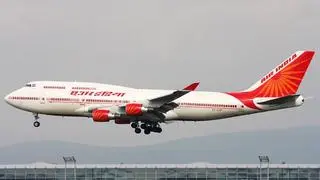Pre-Covid, India was on course to becoming the world’s third-largest domestic aviation market. More recently, leading OEMs [original equipment manufacturers] predicted that our current fleet of 600-700 aircraft would treble to over 2,000 over the next 20 years. While the growth on the ‘visible’ side of aviation (airlines and airports) indeed deserves a cheer, the technical side — the maintenance, repair and overhaul (MRO) market, which ensures the availability and airworthiness of aircraft — struggles to realise its true potential despite being nearly as old as Indian aviation. A capable indigenous MRO industry is imperative to sustain the growth of Indian aviation.
Today, not only is the Indian MRO sector capable of serving domestic aviation, it is also building expertise to become a regional hub for aviation maintenance. The government has recently taken certain corrective policy measures, such as reducing GST from 18 per cent to 5 per cent and changing the definition of “place of delivery of service” to bring export of MRO services on even keel with other countries in this region. Yet, anomalies remain, which benefit foreign players at the expense of Indian MROs. With the aircraft fleet poised to grow to 1,000-plus in the next few years, there would be a need for 200-300 major maintenance checks annually (including 12 yearly and end-of-lease ones), given that the Indian fleet is lease-based. For the Indian MRO sector, this represents an annual service revenue potential exceeding $80 million and, indirectly, a parts procurement business of $600-900 million.
Unfortunately, the above opportunities and revenues risk being lost, since our current policy promotes taking an aircraft abroad for such lucrative jobs. Here’s an example: A typical redelivery (or end-of-lease) check worth $300,000, where the value of replacement parts and components can be as much as $2-5 million, can turn out to be more expensive in India — by nearly $360,000-900,000 per aircraft, owing to an import GST duty of 18 per cent. Parts imported for such checks become costlier by 5– 28 per cent, forcing airlines and leasing companies to undertake such checks abroad.
For DGCA-approved MROs, specific notifications could be amended to nullify or exempt IGST on the parts (including aircraft components) imported for aircraft MRO in India.
Such decisions will not just strengthen the goal of atmanirbharta (self-reliance) but also help India attract regional MRO business and compete on a global scale.
D Anand Bhaskar is the MD and CEO of Air Works. The views expressed here are personal







Comments
Comments have to be in English, and in full sentences. They cannot be abusive or personal. Please abide by our community guidelines for posting your comments.
We have migrated to a new commenting platform. If you are already a registered user of TheHindu Businessline and logged in, you may continue to engage with our articles. If you do not have an account please register and login to post comments. Users can access their older comments by logging into their accounts on Vuukle.